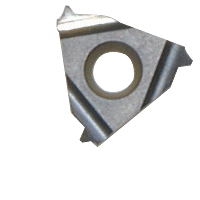Thread tools
In the world of machine shops, precision and reliability are key to successful day-to-day operations. Threading tools play a crucial role in ensuring the quality of threads, which are essential for the assembly of mechanical components.
Threading tools are tools specifically designed to create threads on screws and nuts, allowing them to be tightened and assembled. These tools can range from simple manual dies to sophisticated automated tools, each with unique features to suit different materials and applications.
Threading is a fundamental technique in machine shops to ensure the secure joining of components. Mechanical threading tools are used to create internal threads or external threads. Precision in the creation of these threads is essential to ensure the tightness and correct alignment of assembled parts.
The use of threading tools can vary depending on the type of tool and the material being worked on. For hand threading, dies and taps are used, which are turned manually to cut threads in the material. For industrial applications, automated machines can be used, which provide greater speed and precision. It is essential to choose the right tool for the desired material and thread size to avoid damage and ensure an optimal result.
Using quality threading tools offers numerous advantages:
- Accuracy: Well-designed tools ensure precise and uniform threads, which are essential for the proper functioning of mechanical components.
- Efficiency: Automated tools increase production speed and reduce downtime, improving overall productivity.
- Versatility: There are specific tools for different materials, allowing metals, plastics and alloys to be machined with equal effectiveness.
- Durability: High-quality tools are made of durable materials that guarantee a long service life and reduce the need for frequent replacement.
Frequently Asked Questions
1. What is the difference between internal and external threads?
Internal threading refers to threads cut inside a hole (nut), while external threading refers to threads cut outside a cylinder (screw).
2. Can I use the same tools for different materials?
Not always. It is important to use specific tools for the type of material you are working on to ensure thread quality and tool life.
In conclusion, threading tools are essential for any machine shop. Investing in high-quality tools, understanding their functionality and applying them correctly ensures precision, efficiency and durability, making daily operations safer and more productive.


